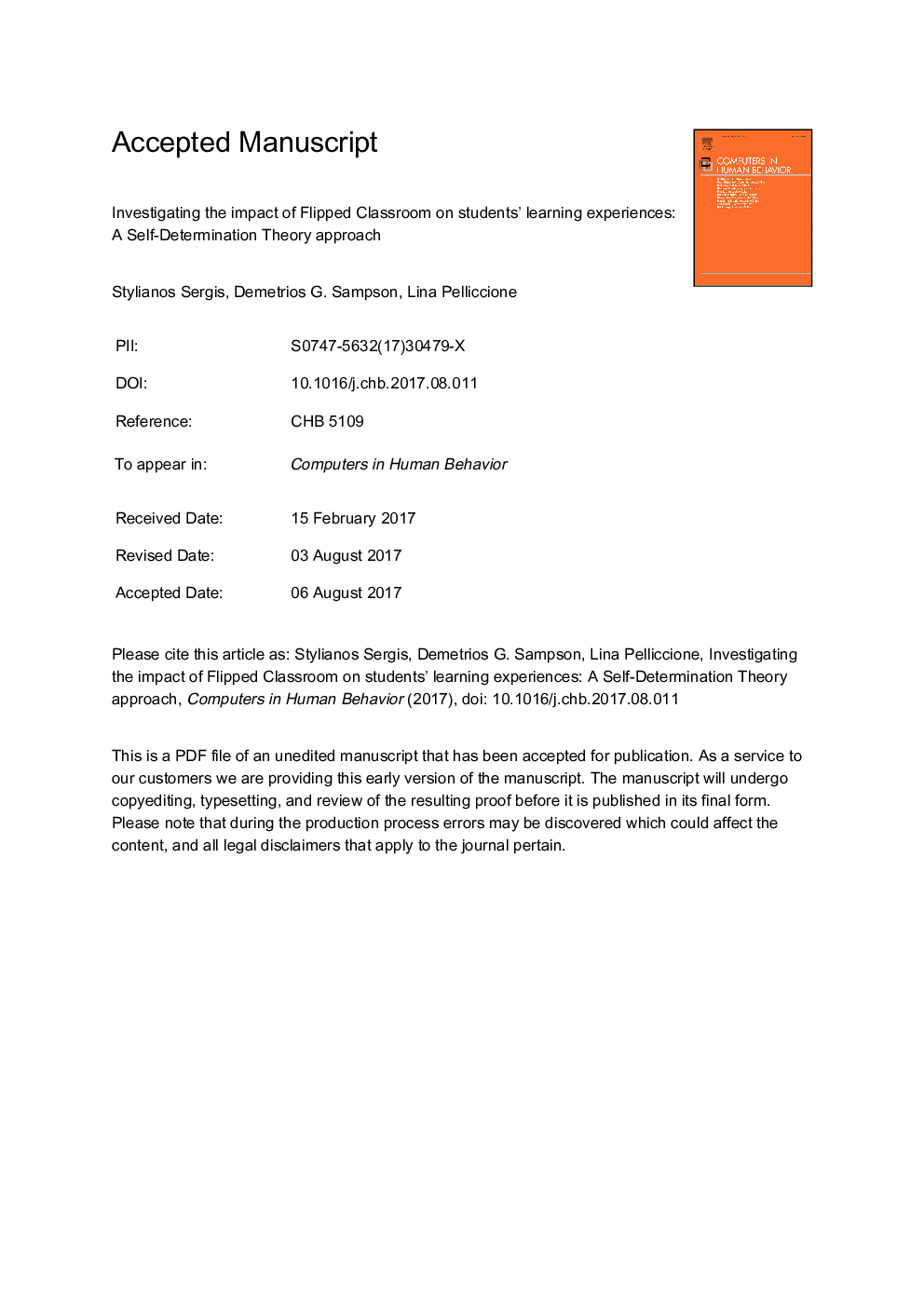| Article ID | Journal | Published Year | Pages | File Type |
|---|---|---|---|---|
| 6836375 | Computers in Human Behavior | 2018 | 18 Pages |
Abstract
Blended learning environments supported by the Flipped Classroom Model (FCM) have been repeatedly investigated in both research and practice contexts, primarily in terms of their capacity to foster students' cognitive learning outcomes and overall motivation for the learning process. However, despite the significant body of existing works studying these aspects, there are still very scarce insights regarding the potential reasons for this impact of FCM on students, from the perspective of how this model affects students' internal satisfaction dispositions and fulfills their various 'needs' for sustaining their motivation. Therefore, by adopting Self-Determination Theory as a theoretical framework to model these student 'needs', this work aims to address this identified issue and investigate, in an exploratory manner, the impact of FCM-enhanced blended learning environments not only on students' cognitive learning outcomes, but more importantly on their internal dispositions (level of satisfaction) and 'needs' for competence, autonomy and relatedness. The work builds on educational data and evidence from three different implementations of FCM in action research studies across diverse K-12 subject domains, and reports on a consistent pattern of positive findings regarding the capacity of FCM-enhanced blended learning environments to improve the aforementioned aspects of students' learning outcomes and experiences, with a particular added value for low-performing students.
Keywords
Related Topics
Physical Sciences and Engineering
Computer Science
Computer Science Applications
Authors
Stylianos Sergis, Demetrios G. Sampson, Lina Pelliccione,
